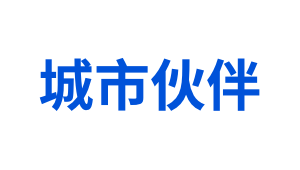Incubators provide business advice, accommodation, services and finance to start-ups. They have a good track record of ensuring that businesses of any type survive the crucial first 18 months of their existence. Notwithstanding the VC incubator casualties of the internet boom, ICT incubators have proved particularly successful at spawning new companies. Yet outside of South Africa, there are remarkably few ICT incubators with the exception of BusyInternet in Accra. This week infoDev’s African regional conference took place in Bagamoyo in Tanzania. Russell Southwood looks at the challenges facing those wanting to set up ICT incubators in Africa and profiles two of them, one in South Africa and the other in Mauritius.
Once incubators were a developed world way of encouraging entrepreneurship with small and medium sized company launches. But now China has the second largest number of incubators (550 for all types of companies) after the USA and the overall number in developing countries is beginning to catch up with the developed world number.
Those launching ICT incubators in Africa face a long list of challenges, of which three are probably ones that need most attention:
* In order to be successful, ICT incubators need to be run by entrepreneurs who have the charisma and energy to persuade people of what they are doing. However the task requires them to be able to speak and understand both the language of government and of the private sector. Without convincing commitment from both of these sectors, ICT incubators will not flourish. Africa may not have these individuals in great numbers but they are there and need to be sought out. ICT incubators are no different from any other ICT investment and as Bertram Eyekuza of Serengeti Investments told the infoDev conference, the mantra for success is "management, management, management." It will not be good enough to put in place political appointees whose main reason for their appointment is their closeness to the ruling party. The person running an incubator must have political contacts in Government but this cannot be their single, defining quality.
* Incubators are a device for addressing the limitations of the market and for this reason they require what economists would call "market gap" funding: up to 50-60% of their costs on average may be paid by Government. (It’s worth noting that BusyInternet is a privately owned organisation without government funding.) In other words they are a public sector intervention for improving the operation of the private sector. However they seem to work most successfully when Government steps back after providing the initial support and allows a public-private partnership to operate the incubator. With some exceptions, African governments have proved remarkably bad at playing this facilitating role. Having put the money in, they want to be able to control and run everything: the results are not always pretty. But without stepping back from total control they will not be able to create these "seedbeds" that will create new jobs and encourage ICT innovation. Most ICT incubators will require government to be able to gift them a building and the costs of refurbishing it without then wanting to pack the Board with their political appointees. Are there governments who will step up to this challenge?
* ICT incubators need a business-friendly climate that creates a successful and thriving ICT sector. Government again needs to supply this supportive environment. Other governments (at local, regional and national level) have provided a sense of ICT leadership and the incubator then becomes a practical expression of these aspirations. You might criticise Mauritian ICT policy for a number of things but you cannot fault their breadth of ambition (see below). They want to become a "cyber-island", not simply to be technically-proficient outsourcers in the global economy but also to breed their own innovators. They may or may not succeed but they have made serious financial commitments to realise their policy. With or without an ICT policy of this type in place, the potential ICT incubator operator has to be able to convince Government to play its part in the realisation of the project. The private sector cannot simply moan that the Government is doing nothing to encourage the ICT sector. It needs to get in at an early stage and make some significant commitments itself. It needs to show Government that it’s prepared to do some of the "heavy lifting".
The two examples below give some idea of what can be achieved when all of these things fall into place:
MAURITIUS: ICT INCUBATOR CENTRE TARGETS YOUNG PEOPLE WITH TALENT AND IDEAS
The National Computer Board’s ICT Incubator Centre came out of a feasibility study completed in May 2001. It was an integral element of the Mauritius Government’s vision of a "cyber island". As the Minister of Finance said in the Budget speech in March 2002:
"In our drive to make of Mauritius a Cyber Island, we are not ignoring the need to promote Mauritian entrepreneurship. Our young people are endowed with talent and potential for innovative ideas in ICT. They need to be provided with the necessary support and facilities. The National Computer Board will set up an ICT incubator to promote start-ups."
It set out to be a "centre of excellence where ideas and entrepreneurship are transformed into success and commercially viable businesses". It wanted to be able to create new jobs by providing cost-effective facilities and infrastructure put together with business support and advice. The start-up has available in one place the following: consulting services related to preparation of business plans, financial management, legal and marketing and relevant. training. These facilities and services offered at concessionary rates. The incubator has an MOU with the University of Mauritius.
Its target group was young entrepreneurs with "bright but value-added ideas" and business owners with less than one year’s operation with innovative ideas. Rather than spread itself thinly, it chose to focus on four areas: e-business, internet content development, multrmedia and bio-informatics.
There is a rent "escalator" so that each successive year tenants pay more (see below) before moving out of the incubator in year 4:
Year 1: Rs 6,000
Year 2: Rs 7,500
Year 3: Rs 8,625
The incubator itself has no funds of its own but has access to start-up funds though the Development Bank of Mauritius.
The tenant of the incubator gets an office space and these in units of about 20 sq m and it has a total of 5300 sq ft of lettable space. The office has: air conditioning, electricity, data and telephone points to a digital PABX system, a mailbox and a handset. They enjoy fast access via ADSL, photocopying facilities, reception and secretarial services, a meeting room and fax. It had originally intended to buy its own building but is currently renting. According to Roshan Seebaluck, Assistant Manager:"Start-ups currently hosted at the incubator cover the following areas: e-learning, medical transcription, software and multimedia development, internet kiosks, website development, e-tourism, e-commerce and most recently, an online medical store".
The Government has funded it to the tune of USD150,000 and 60% of its turnover is government funded with the balance coming from rental income.
The incubator is launched to be part of the Government’s broader ICT vision. It has a USD100 million line of credit from India to build Ebene Cybercity. This a 172 acre site that it describes as a "knowledge zone" with a 12-storey cyber tower with 325,000 sq ft of office space at USD12 per sq ft a year. There is also plentiful bandwidth as the island has two fibre loops and access to the SAF cable: 10 gbps upgradeable to 65 gbps.
The government is in the process of liberalising its telecommunications infrastructure and is at pains to show how bandwidth cost compare favourably to other parts of Africa. It plans to have all government services online by 2005 and has equipped all colleges with computers, with secondary schools to follow.
The Government’s overall ICT business strategy is focused on the following areas (existing companies located there in brackets):
IT Enabled services
Call centres: Mondial Assistance, CITM, Bowman Cybercity, Answer Plus, AD Marketing,
BPO/outsourcing: Accenture, Berger Levrault, Centrefile, Cendris, UIE
Data Transcription
E-Business
Data storage and Disaster Recovery Centre
Web Commerce
Content Development
In terms of software development, it has Infosys, Satyam and BBDO and FC Medias and Ingecom in the multimedia field. It also has the regional headquarters of IBM, Microsoft and HP. New operators who have set up in the island include: GE Capital, E-media, Hinduja TMT and Client logistic.
SA’S VOXEL INNOVATION SUPPORT CENTRE HELPS TURN IDEAS INTO REALITY
Voxel Innovation Support Centre was set up in 2001. The initiative was spawned by the South African Department of Science and Industry. In 2000 it asked for proposals in three areas: a Technology Development Centre (Zenzele Technology Centre, CSIR), an Innovation Support Centre (Voxel) and a Technology Centre (Soft Technology Centre, a CSIR/University consortium).
Voxel has 1500 sq m of space with 4 tenants but it also assists a further 30 people. Originally it was intended that it would set up as a building-based incubator. However Ethekwaini Municipality (which covers Durban where it is based) launched a 9000 sq m incubator. So the focus has shifted to providing advice directly to a wider range of organisations. Sean Achim of Voxel said: "We will have more tenants in the futuire but we want them to be strategic partners: business support people like legal advisers, accountants and marketing people."
The idea of the Innovation Support Centre is that it enables someone to get from having a good idea to having a fully developed business plan. The Centre has a detailed process that it can take people with ideas through. It includes: building a team to develop the project; offering strategic advice; developing a two year cash flow with net profits after taxes; identifying joint venture partners and protecting intellectual property.
As Sean Axim puts it: "We foster the consortium approach and look for a company to partner with that has a similar product range. We facilitate the process and act as a signposter, showing people where they have to go next." The whole process takes six months.
It’s hard to discuss much of their work as it’s covered by non-disclosure agreements but a typical example is a service delivery mechanism using distance learning which can be delivered to a broad market. It was developed as a franchise concept and sold to one of the provinces. This province has sold a further 11 franchises.
Although it would like to have access to investment funds, it currently operates without them. Axim sees a very specific need: "We wish we had the money for seed capital, especially for the registration of patents. These can often cost up to USD2000 and it’s the first stage in protecting the applicant. At present we rely on the University (of Natal) to do this but it takes a 50% turnover royalty on the product."
It also offers technical support. It has its own 1 ghz spectrum analyser and frequency generator. This helps those developing wireless applications. In addition, it has a server because 30% of its clients have ideas that use a file server and it made good sense to reduce their initial costs in this way.
It is launching an Innovation Competition in 2004 for embedded systems and IT sector ideas. It is also offering a voucher scheme that offers R20,000 of business support products and services for just R2,000. As part of its activities it also produces a product portfolio for people who’ve gone through the process. As an infoDev funded project it is launching a portal for incubators in sub-Saharan Africa which will be launched next year. There is also a South African Technology Incubators Association.







